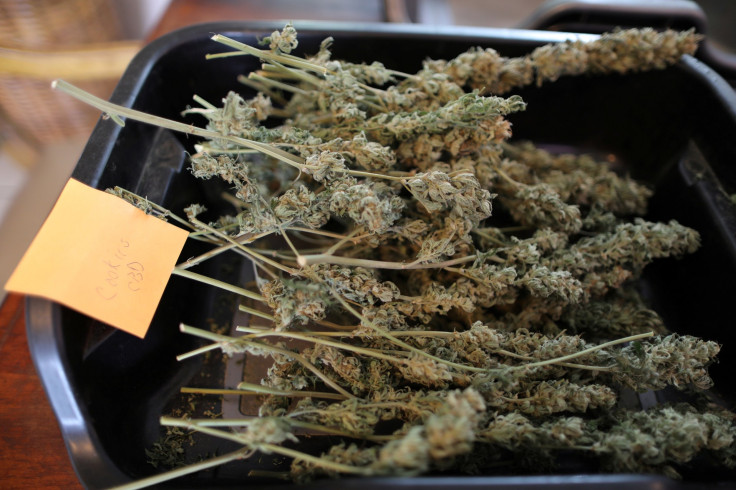US hemp industry reached almost US$1 billion in 2017

The market for hemp products ended 2017 with a bang as total sales of the industry reached nearly US$1 billion (AU$1.35 billion).
Sales from the overall hemp trade in the US reached US$820 million (AU$1.1 billion), signalling a possible growth of up to US$1.9 billion (AU$2.56 billion) in less than five years, according to Hemp Business Journal’s 2017 data. Now, the industry is seeing an unprecedented flourish as it continues to grow, with more people now discovering the innovative uses of the plant through food and beverage, supplements, car parts, and even personal care products.
Hemp, for thousands of years, has been used as a reliable source of raw materials for various health and industrial purposes. Hemp seeds and flowers are well-known for natural uses like food production and body care, while hemp stalks are more for industrial uses including concrete production, biofuel, and even paper production.
The bulk of the hemp sales came from personal care products, raking almost 22 percent or US$181 million (AU$244 million) of the annual total. Hemp seed oil, one of the plant’s by-product, is currently used to produce beauty care materials such as soap, conditioners, shampoo, lip balm and salves among others. Industrial applications come in second at 18 percent or US$144 million (AU$194.4 million) of the total sales.
Because of its close relation to recreational marijuana, hemp has been subject to much controversy, since both plants originated from the same cannabis species. Hemp, however, is genetically different, and its distinction also manifests in its chemical makeup, use and even cultivation.
But recently, the hemp industry also scored another milestone, as the Senate passed the US Hemp Farm Bill, a law legalising hemp agriculture in the country. This means that the plant is now classified as an agricultural product and will be taken out of the Controlled Substances Act. Such development can lead to further breakthroughs when it comes to the use of hemp as farmers are now allowed to grow and seek research grants and assistance from the US Department of Agriculture.
The new law could also mean more lucrative opportunities for hemp players to flourish and tap potential markets and other countries like China. The bill is beneficial to companies like PotNetwork Holdings, Inc. (TCMKTS:POTN), one of the leading companies that have shown rapid growth in sales in the last couple of years.
In January 2018, POTN enjoyed a 50 percent increase in sales compared to December of 2017, with over US$2 million (AU$2.7 million) in revenue.
“We have moved into 2018 with continuing growth in our sales results which has heightened our expectations for the year,” POTN CEO Richard Goulding said. “These results prove that we are experiencing increasing consumer and reseller acceptance and preference of our product line, which we are committed to continue to refine and expand.”
POTN, via subsidiary Diamond CBD Inc., conducts research, development, and sale of premium hemp extracts with cannabinoids and natural hemp derivatives.
CBD or cannabidiol is one of the more than 85 cannabinoids identified in marijuana and hemp plants that’s considered to be non-psychoactive. It also has a wide array of therapeutic benefits. Hemp-derived CBDs are considered to be the best legal alternative to marijuana-based CBD (substances that are banned at a federal level), allowing people to enjoy its benefits without the negative effects.
Market growth has encouraged companies like POTN to secure documents needed for the Securities and Exchange Commission and become a fully reporting SEC company. This move plays well as the hemp industry anticipates another sales surge, and an SEC approval will further boost each hemp company’s credibility to its investors.
Back in 2016, the hemp-derived CBD market is projected to grow at an annual rate of more than 50 percent, positioning it as the fastest growing sub segment within the multi-billion-dollar legal cannabis and hemp market.
Other industry players are also working hard to further boost the development of the hemp industry. Via a press release, Vote Hemp President Eric Steenstra said that the recent figures of the overall hemp sales are a reflection of increasing interest in hemp products. Vote Hemp is a grassroots hemp advocacy organisation.
“As the US hemp market continues to grow at a double-digit pace annually, American consumers continue to demonstrate their strong interest in hemp products,” Steenstra stated.
Prior to the Senate vote of the US Hemp Farm Bill, various states have already enacted on their own hemp bills, with a total of 1,456 state licences already issued. In 2017, 19 states were already growing hemp (about 25,712 acres), while various universities all over the US have also meticulously conducted hemp research.
And with the ever-growing hemp industry that’s now being backed by the government, it would be easy to project a multibillion-dollar market for hemp in less than a decade.
Article was written via press releases sent for consideration.





















